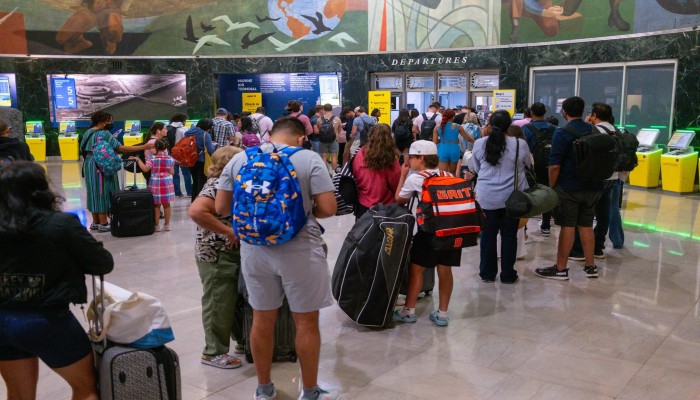
Global Tech Outage Grounds Flights and Hits Businesses
Gerald Fenech , Published: July 19, 2024, 2:07 pm

A massive global technology outage on Friday took down airlines, medical services, TV broadcasts, banks and scores of other business and services around the world, a stunning example of the fragile dependence the global economy has on certain software and the cascading effect it can have when things go wrong.
The outage was attributed to CrowdStrike, a cybersecurity firm whose software is used by scores of industries around the world to protect against hackers and outside breaches. A software update issued by CrowdStrike appeared to be at the root of the problem, resulting in crashes of machines running the Microsoft Windows operating system.
“This is not a security incident or cyberattack,” said George Kurtz, the chief executive of CrowdStrike. “The issue has been identified, isolated and a fix has been deployed.”
Here’s how the spillover effects are being felt all over the world:
U.S. airlines were reporting major disruptions across the country. At least five U.S. airlines — Allegiant Air, American, Delta, Spirit and United — had grounded all flights for a time, according to the Federal Aviation Administration.
The issues were also being felt at airports around the world, including Hong Kong International Airport, Sydney Airport, Berlin Brandenburg Airport, Schiphol Airport in Amsterdam and Denver International Airport. At the Manchester Airport in Britain, there were long lines in the departures area as many machines at check-in counters were not working. Ryanair, one of the largest airlines in Europe, said it was experiencing disruption because of a third party IT outage that is “entirely out of our control.”
In the U.S., the outage appeared to be affecting emergency 911 lines in multiple states, the U.S. Emergency Alert System said on social media. It said people experiencing emergencies should call the number for their local police or fire department.
In Britain, the National Health Service was experiencing a loss of access to its computer systems across a number of hospitals and doctors offices.
Many television broadcasters also reported problems. In France, TF1 and Canal+, among the most watched, said in posts on X that it couldn’t go on air. “We’re all onstage, but there’s a gigantic breakdown in the control room” making it impossible to go live, Christophe Beaugrand-Guerrin, a TF1 presenter, wrote on X.